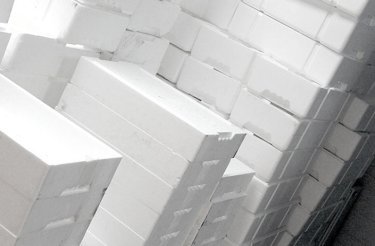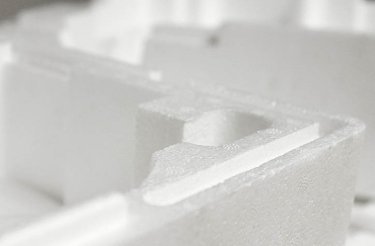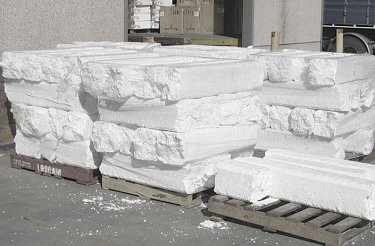
Can Polystyrene EPS be recycled?
Learn all about whether Polystyrene EPS can be recycled, and if so, what is involved in the process.
Can polystyrene EPS be recycled?
Expanded polystyrene or EPS is a plastic foam material that’s versatile, durable, lightweight, moisture resistant, shock absorbent, thermally efficient, easy to use and cost-effective. Over the years, it became the material of choice in construction (where it is used to insulate roofs, walls or floors) and the packaging industry (where it is used to maintain the right temperature and keep products safe and fresh for longer).
Since EPS is such a commonly used material that’s disposable but not biodegradable, it often ends up in landfills or polluting oceans and other bodies of water, becoming a waste nightmare and a threat to marine life and human health. It’s therefore extremely important to dispose of EPS the right way in order to protect the environment. This prompts the question: can expanded polystyrene be recycled?

EPS recycling
The good news is that EPS is a highly recyclable material if it hasn’t been contaminated by other materials or substances. Recycled EPS can be turned into crystal PS or new EPS products such as furniture pieces, packing peanuts, picture frames, decorative mouldings and so on.
With both individuals and businesses becoming more mindful of their carbon footprint, the recycling rates for EPS have increased over the years. People are growing more aware of the negative impact their habits and activities have on the environment, so they’re paying more attention to the products they purchase and their recycling options. They also demand the same level of implication from the companies they do business with. As a result, EPS recycling has become a priority for many of the companies that use this material in their operations.

Recycling EPS is a complicated process
The not-so-good news is that recycling EPS can be quite a complicated process. Most of the EPS used in the construction sector for insulation cannot be recycled and inevitably goes to landfill. The rest of EPS products are quite difficult to recycle for various reasons. Recycling at the consumer level is not a viable option. Therefore, EPS waste needs to be taken to special facilities where it can be compressed and then recycled. This poses numerous challenges for businesses, as they don’t always have the means to store and transport large amounts of bulky EPS to a recycling facility.
However, there are ways to tackle these issues and make EPS recycling for companies big and small. The best option for businesses that need to handle considerable amounts of EPS waste is to use a recycling compactor on-site that can compress the EPS loads and reduce their volume, making storage and transportation easier. That can save companies a lot of time and money, and streamline the entire recycling process.

Can we help you?
If you’re interested in learning more about how Mil-tek may help your business improve its waste management, get in touch with us.
We will contact you as soon as we can.